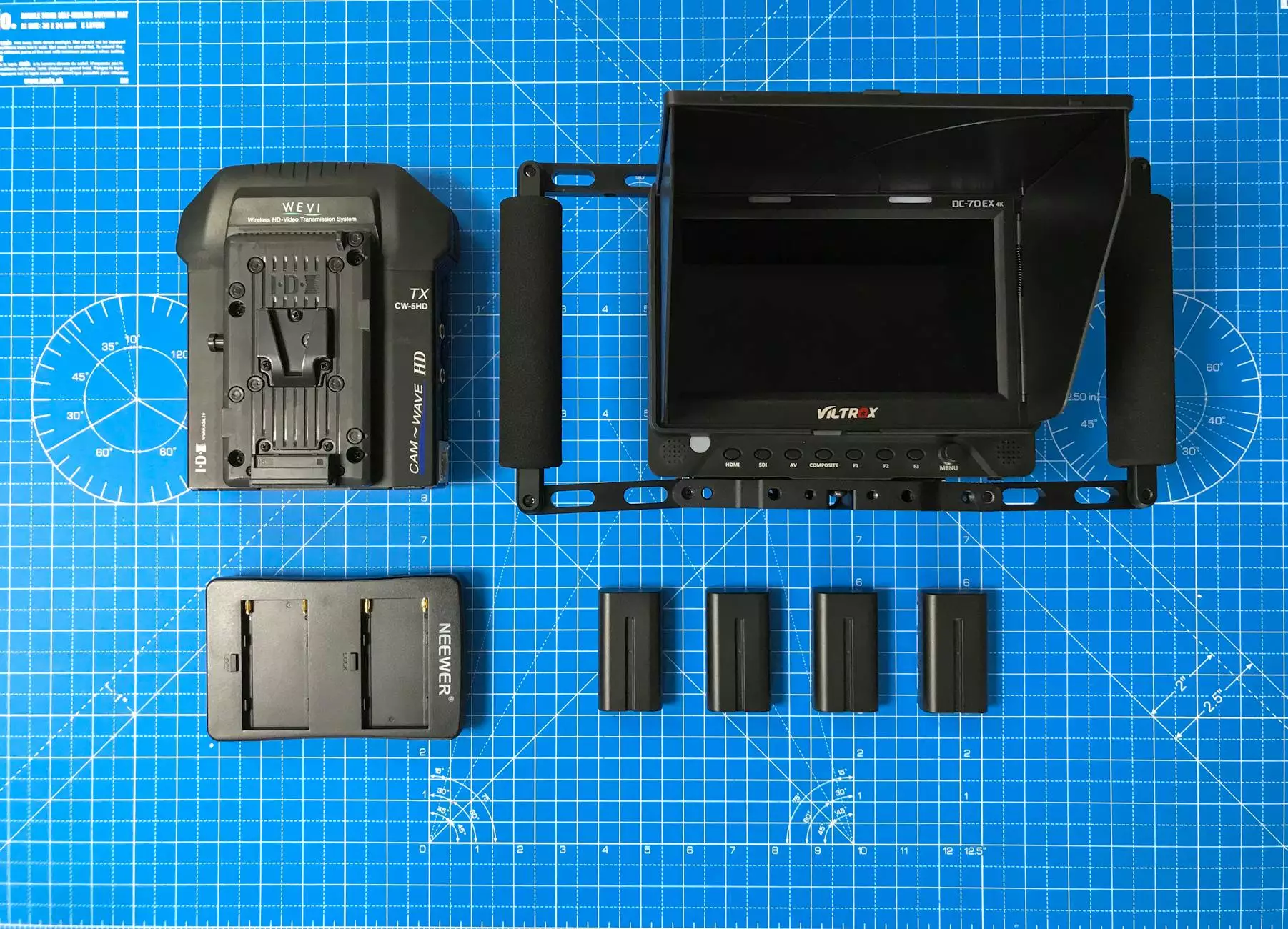Comprehensive Exploration of the Car Engine Control Unit: How It Revolutionizes Modern Automotive Performance

In an era where automotive sophistication is advancing rapidly, the Car Engine Control Unit (ECU) stands as a pivotal component that drives efficiency, reliability, and performance across modern vehicles. As the brain behind engine management, the ECU ensures that each engine operates at optimal parameters, delivering power where needed while maintaining fuel economy and emissions compliance. This detailed guide explores the intricacies of the Car Engine Control Unit, its critical functions, technological advancements, and how choosing the right ECU from trusted suppliers like 1autoparts.com can significantly enhance your vehicle's performance.
Understanding the Core Functionality of the Car Engine Control Unit
The Car Engine Control Unit is an electronic device that manages the engine's electronic and mechanical systems. It acts as the central processing hub that continuously collects data from various sensors in the vehicle, processes this information, and makes precise adjustments to engine parameters to optimize performance. The ECU’s capabilities include controlling fuel injection, ignition timing, turbocharging, idle speed, and variable valve timing — all vital for engine efficiency and longevity.
The Anatomy of the Engine Control Unit
- Microprocessor: The core of the ECU that runs software programs to process sensor data and make decisions.
- Memory Bank: Stores firmware, diagnostic trouble codes, and real-time data logs.
- Sensors: Inputs for temperature, pressure, oxygen levels, throttle position, among others — feeding data to the ECU.
- Actuators: Components that execute commands such as opening injectors or adjusting valves.
- Communication Interfaces: Enable data sharing via protocols like CAN bus with other vehicle systems.
The Critical Functions of the Car Engine Control Unit
The Car Engine Control Unit performs multiple essential roles that directly influence vehicle operation, safety, and environmental impact.
1. Fuel Management and Injection Control
The ECU precisely controls fuel injection timing and quantity, ensuring optimal air-fuel mixture ratios. This improves fuel economy & reduces emissions by preventing excess fuel consumption and incomplete combustion.
2. Ignition Timing Adjustment
By controlling when spark plugs fire, the ECU maximizes power output while minimizing knocking—a form of engine knocking or pinging caused by pre-ignition that can harm the engine.
3. Airflow and Turbocharger Control
The ECU manages airflow via throttle position sensors and turbochargers, boosting engine efficiency and power according to different driving conditions.
4. Emissions Compliance and Monitoring
Through sensors such as oxygen sensors, the ECU ensures emissions stay within legal limits, activating catalytic converters or adjusting fuel and air ratios as needed.
5. Diagnostic and Fault Detection
The ECU continuously monitors engine health, stores fault codes, and can alert drivers via dashboard indicators to facilitate early diagnosis and maintenance.
Advancements in Car Engine Control Units: The Future of Automotive Technology
The evolution of the Car Engine Control Unit mirrors the rapid advancement of automotive technology, emphasizing integration, smart features, and eco-friendly operation.
1. Integration with Advanced Driver-Assistance Systems (ADAS)
Modern ECUs are integrated with systems like adaptive cruise control, lane-keeping assist, and collision avoidance, creating intelligent vehicles that respond dynamically to their environment.
2. Maps and Software Tuning
With the rise of aftermarket tuning, ECU remapping or flashing unlocks vehicle performance potential, allowing customization for enhanced horsepower, torque, or fuel efficiency.
3. Use of Artificial Intelligence (AI) and Machine Learning
Emerging ECUs leverage AI to adapt to driving habits, road conditions, and maintenance needs, providing a smarter, more personalized driving experience.
4. Enhanced Diagnostic Capabilities
Next-generation ECUs offer real-time cloud connectivity, allowing technicians to perform remote diagnostics, system updates, and predictive maintenance.
Choosing the Right Car Engine Control Unit: A Key to Optimal Vehicle Performance
Selecting the correct ECU is crucial for ensuring compatibility, durability, and performance gains. Consider these factors before making a purchase:
Compatibility
- Match the ECU to your vehicle's make, model, and engine specifications.
- Verify compatibility with your existing wiring harness and sensors.
Quality and Reliability
- Purchase from reputable suppliers like 1autoparts.com that guarantee authentic and tested products.
- Look for units with adequate durability ratings for your driving environment.
Features and Tuning Capabilities
- Assess whether the ECU supports software tuning or remapping for performance customization.
- Ensure it includes diagnostic port access for future troubleshooting.
Technological Support and Updates
- Choose ECUs that come with firmware update support and technical service.
- Review vendor support for troubleshooting and software updates.
The Role of 1autoparts.com in Providing Top-Quality Car Engine Control Units
1autoparts.com stands at the forefront of automotive parts supply, offering an extensive range of Car Engine Control Units designed for diverse vehicle makes and models. Their products emphasize:
- Authenticity: Genuine OEM and trusted aftermarket ECUs.
- Performance: Units engineered to optimize engine responsiveness and efficiency.
- Compatibility: Wide selection covering most vehicles on the road.
- Technical Support: Expert guidance for selection, installation, and tuning.
Partnering with reputable suppliers like 1autoparts.com guarantees that you'll access cutting-edge technology, reliable quality, and excellent customer service that empower you to upgrade and maintain your vehicle effectively.
Optimizing Your Vehicle’s Performance with the Car Engine Control Unit
Engine management is central to unlocking your car’s full potential. Proper calibration, timely upgrades, and professional tuning of the Car Engine Control Unit can result in:
- Enhanced Power and Torque: Better acceleration and responsiveness.
- Improved Fuel Economy: Reduced operational costs and environmental impact.
- Reduced Emissions: Compliance with stringent environmental regulations.
- Better Driveability: Smoother operation, optimized idle, and targeted responses.
Conclusion: The Car Engine Control Unit as the Heart of Modern Automotive Excellence
In an industry driven by innovation, the Car Engine Control Unit remains the most vital link between technology and engine performance. Its ability to monitor, adapt, and optimize engine functions makes it an indispensable component for drivers seeking reliability, efficiency, and power. Future developments promise even smarter, more integrated, and more customizable units that will redefine what’s possible behind the wheel.
For vehicle owners, enthusiasts, or automotive professionals, investing in top-quality ECUs from trusted providers like 1autoparts.com ensures the best performance enhancement and long-term vehicle health. Harnessing the full potential of your engine begins with understanding the importance of the Car Engine Control Unit—a true technological marvel steering today’s automotive innovation.









